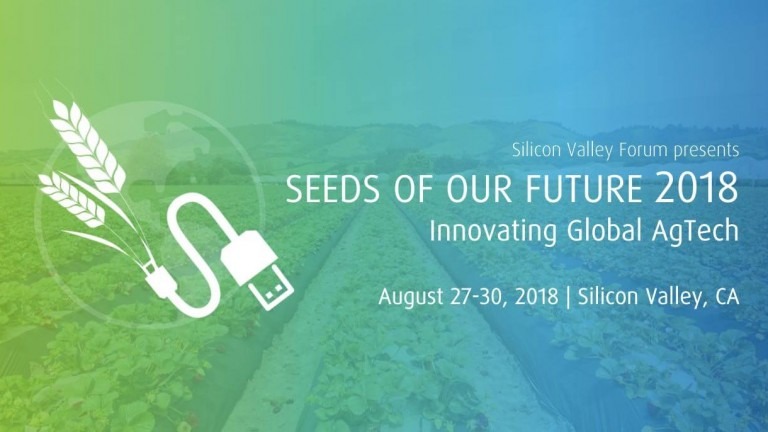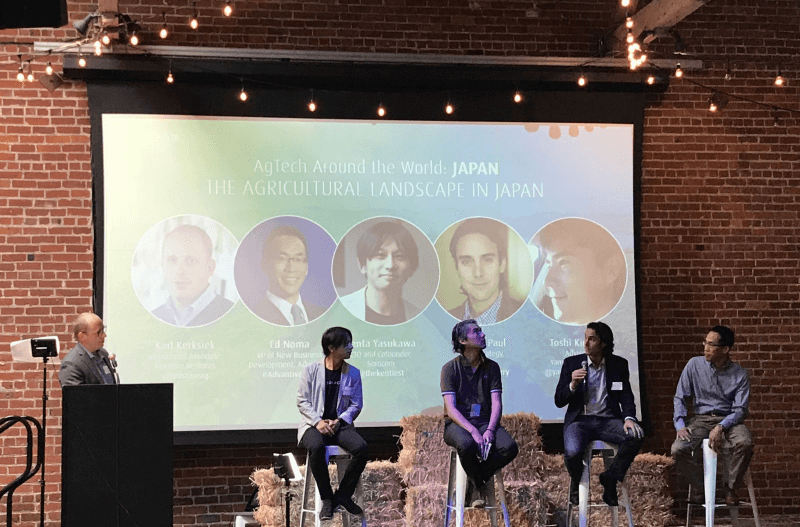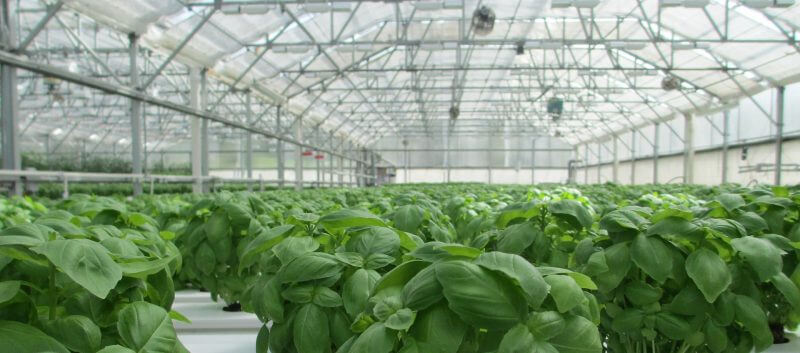AgTech and IoT together at Seeds of Our Future

Smart Farming and AgTech offer some of the most promising new use cases within the growing Internet of Things. Our growing ability to improve crop yields, limit crops lost to waste and spoilage, and improve conditions for farm workers while conserving scarce water and soil resources offers a genuine opportunity to make a material difference in everyday life and reduce hunger and energy waste worldwide.
AgTech also offers some of the Soracom team’s favorite use cases, from Smart Cows to connected farming to the Internet of Bees.

Hay bales out for AgTech!
So we were thrilled to have the opportunity to join representatives from Driscoll’s Berries, Advantiv Technologies, and Yamaha Motor Ventures Silicon Valley at Seeds of Our Future 2018 for a lively discussion of agricultural technology themes and applications in Japan, the US, and around the world.
Meticulous Innovation
Ed Noma, VP Business Development at Advantiv, kicked off the discussion by noting Japan’s global leadership in materials production, especially in the area of precision composites. The same technical expertise that creates crucial materials for products from the Boeing 787 Dreamliner to the Apple iPhone also delivers nanobubble technology to improve irrigation, supporting better root mass and higher sugar content for consumer crops like tomatoes and strawberries. This highly specialized technical capability dovetails neatly with Japan’s leadership position in perfecting techniques for indoor growing, combining LED lighting with sophisticated sensing and actuation systems.

Nolan Paul, Head of R&D Strategy and Emerging Technology at Driscoll’s, agreed, noting that Driscoll’s has been very keen to see what Japan has been doing specifically in the areas of controlled environment and automated growing. Driscoll’s has a long history of innovation, and is responsible for not only many of the berry strains we find in California supermarkets today but also for the ubiquitous clamshell packaging in which they are shipped and sold. Looking to Japan, Driscoll’s sees promise in tabletop growing techniques, in which crops ultimately deliver themselves directly to the harvester. However, Paul noted that these methods are currently relatively high-cost and so more suitable for markets like Japan and Northern Europe where consumers are comfortable with higher produce prices.
Toshi Kimura of Yamaha Motor Ventures observed that Japan’s high produce prices relative to the US are driven largely by the smaller size of Japanese farms. Even as farmers apply cutting-edge technology to maximize yield per acre (or per square foot!), absolute production volumes may be relatively low.
This explains why you can buy a clamshell of strawberries at Whole Foods for around $3, while in Tokyo you might find yourself paying that much or more for a single berry.

However, it’s important to note that the berry you buy in Tokyo will be noticeably sweeter and softer, and probably packaged not in a clamshell but in a gift box. Because berries are grown closer to the market, sugar content can be prioritized over shelf life and durability. For the consumer, this means a less rugged but noticeably tastier finished product.
Big Data for Small Growers
Kenta Yasukawa, Soracom co-founder and CTO, observed that in this regard part of what Japan has to offer the AgTech world is low-tech innovation. Because they grow for a market that values quality over durability or price, Japanese farmers have developed extremely deep and narrow knowledge around the cultivation of specific, prized cultivars. For instance, an extremely sweet and flavorful strawberry, or a mushroom cherished for its qualities as a broth base.
AgTech offers the opportunity to preserve this local knowledge while producing at a scale that can feed the world. The solution will be found in the IoT sensors that monitor our crops, the actuators that manage them, the cloud-based analytics that improve both yield and quality, and the developers and growers driving the cutting edge of today’s growing.
Soracom is grateful to the Silicon Valley Forum and Yamaha Motor Ventures Silicon Valley for the opportunity to connect with AgTech leaders from California and around the world through Seeds of Our Future.



